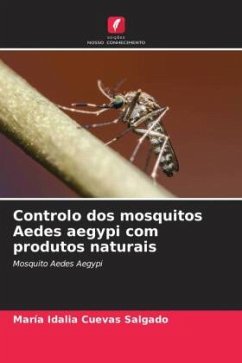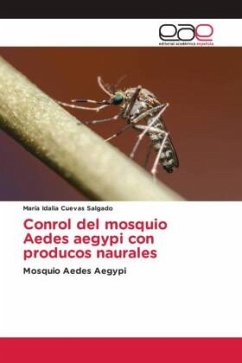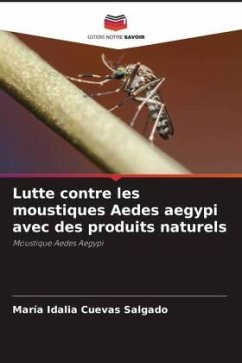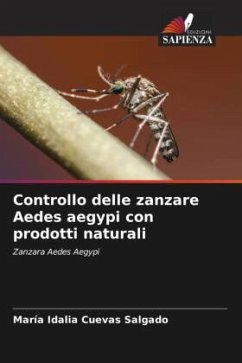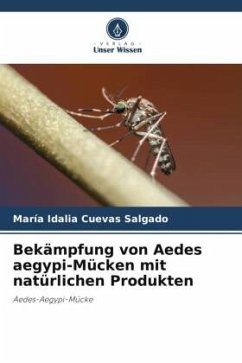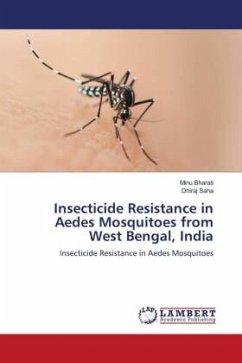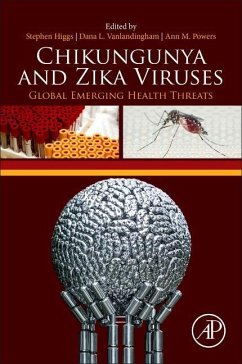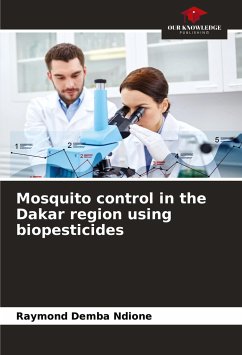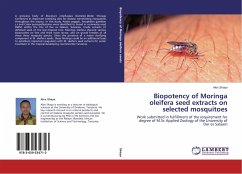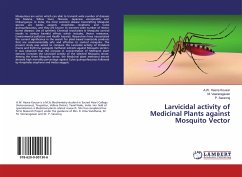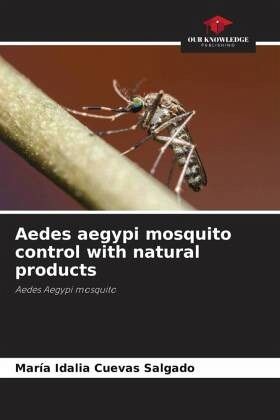
Aedes aegypi mosquito control with natural products
Aedes Aegypi mosquito
Versandkostenfrei!
Versandfertig in 6-10 Tagen
29,99 €
inkl. MwSt.

PAYBACK Punkte
15 °P sammeln!
The Aedes aegypti mosquito thrives in urban habitats and breeds mainly in artificial containers. Unlike other species, it feeds during the day; the peak biting periods are early in the morning and in the evening before dark. Their eggs can remain in dry environments in their breeding sites for more than a year, and hatch when they come into contact with water (WHO, 2020). Despite using various alternatives to attack the dengue vector, such as the biological method based on the use of fish (Poecilia reticulata) or bacteria and public sanitation, the epidemic outbreaks that threaten the populati...
The Aedes aegypti mosquito thrives in urban habitats and breeds mainly in artificial containers. Unlike other species, it feeds during the day; the peak biting periods are early in the morning and in the evening before dark. Their eggs can remain in dry environments in their breeding sites for more than a year, and hatch when they come into contact with water (WHO, 2020). Despite using various alternatives to attack the dengue vector, such as the biological method based on the use of fish (Poecilia reticulata) or bacteria and public sanitation, the epidemic outbreaks that threaten the population have not yet been efficiently and definitively regulated (WHO, 2016). This is why today the quickest alternative toThe fastest alternative for their control, which consists of the use of chemical insecticides to keep epidemic outbreaks under controllable levels, continues to be used today (WHO, 2016).



